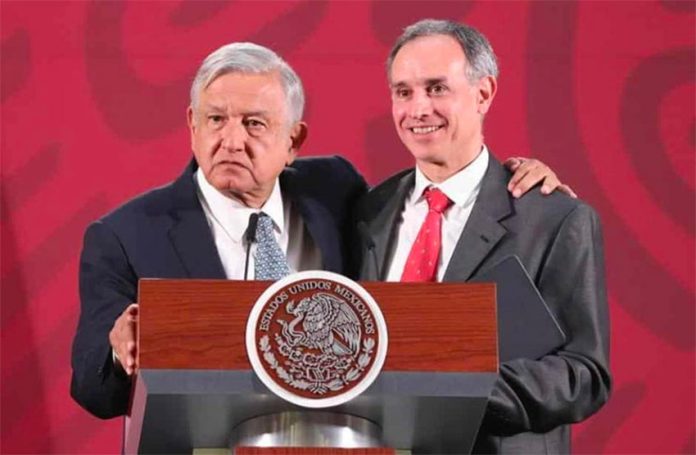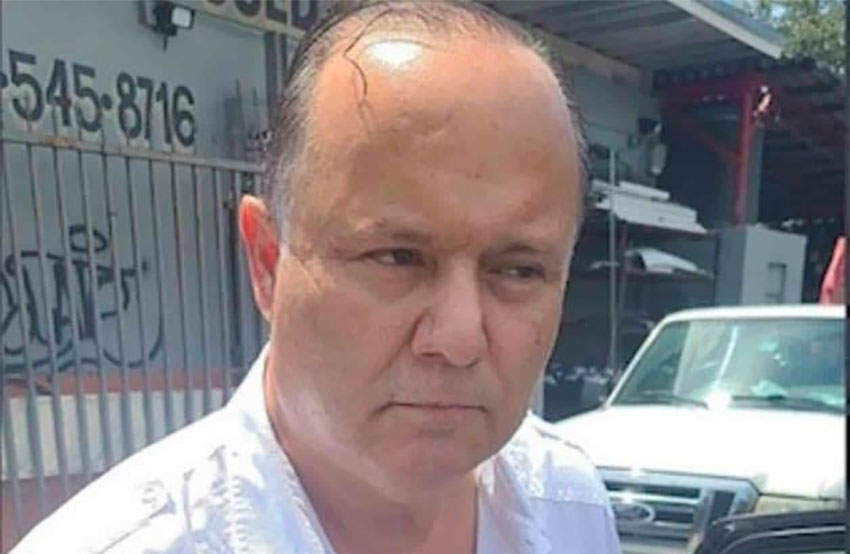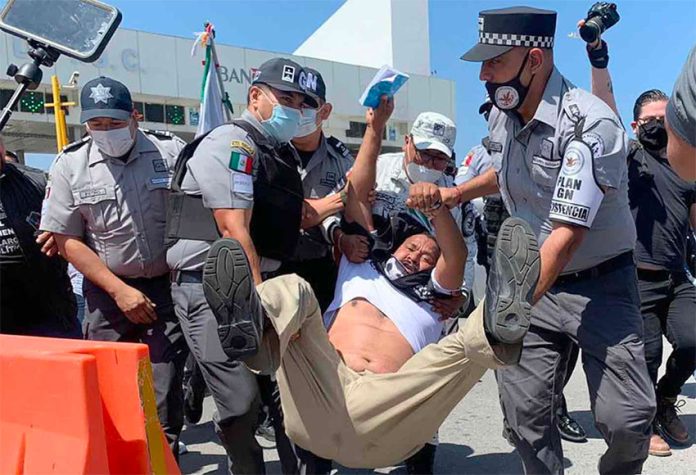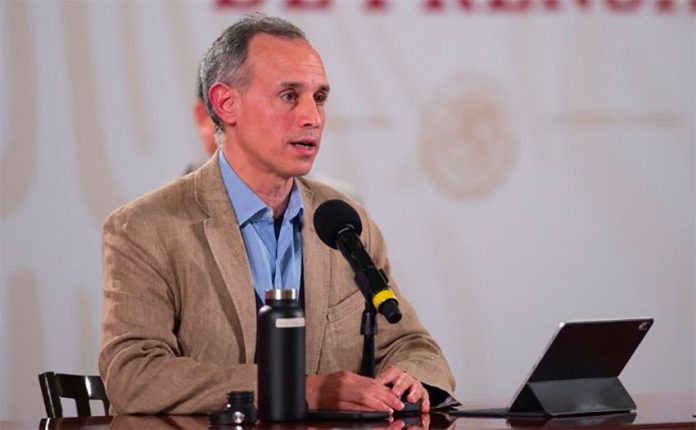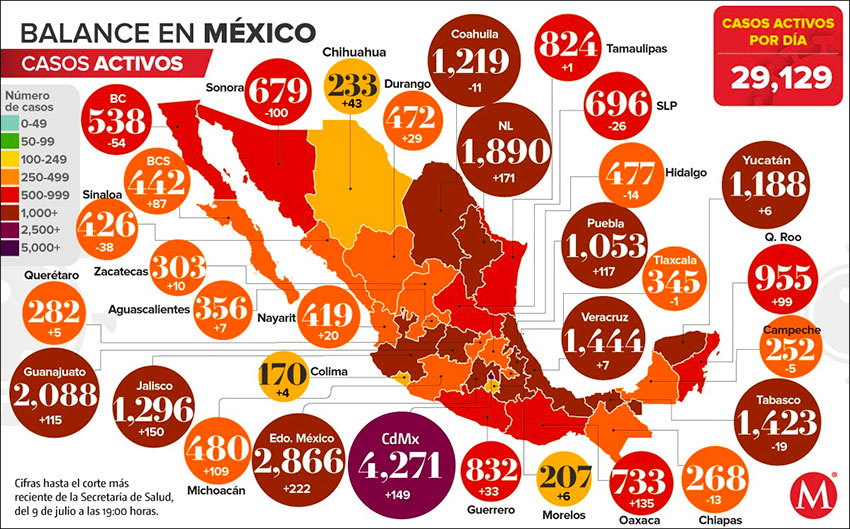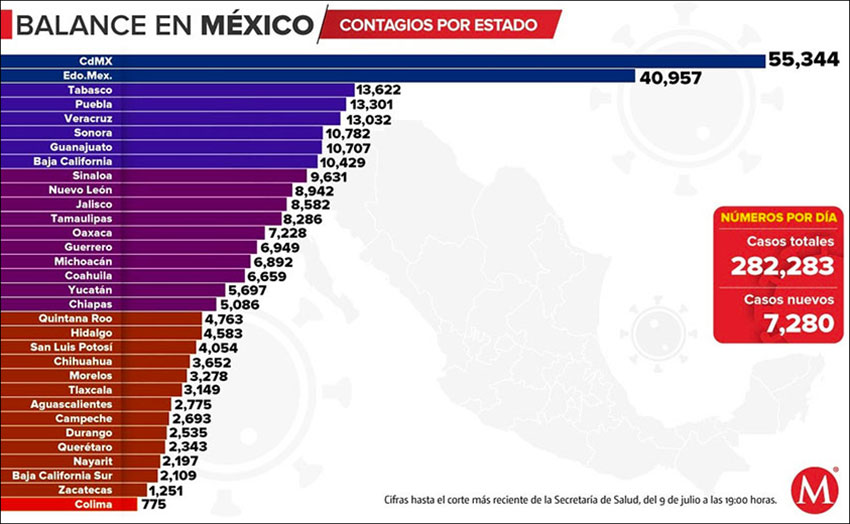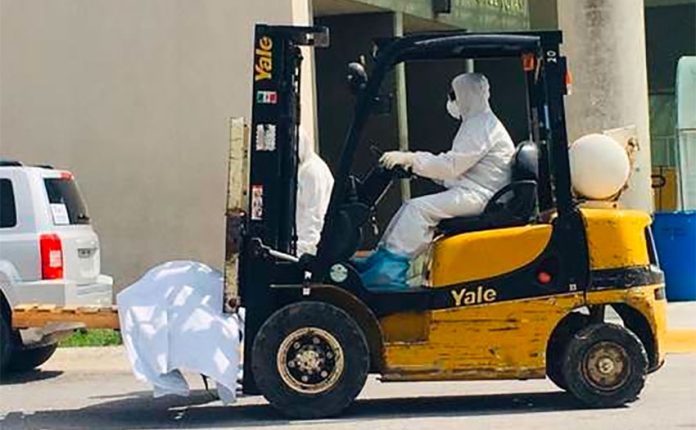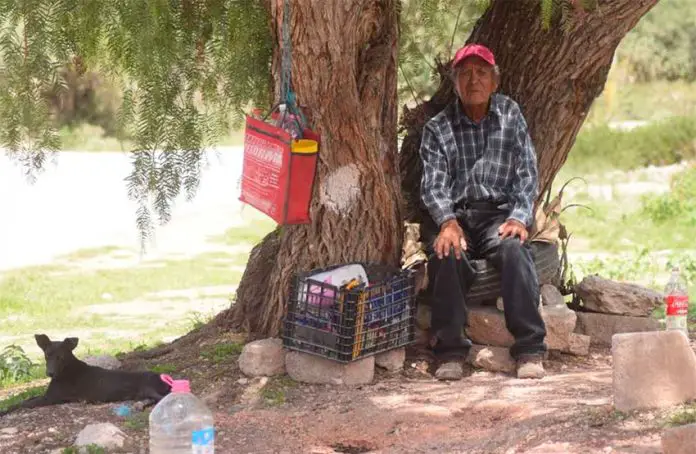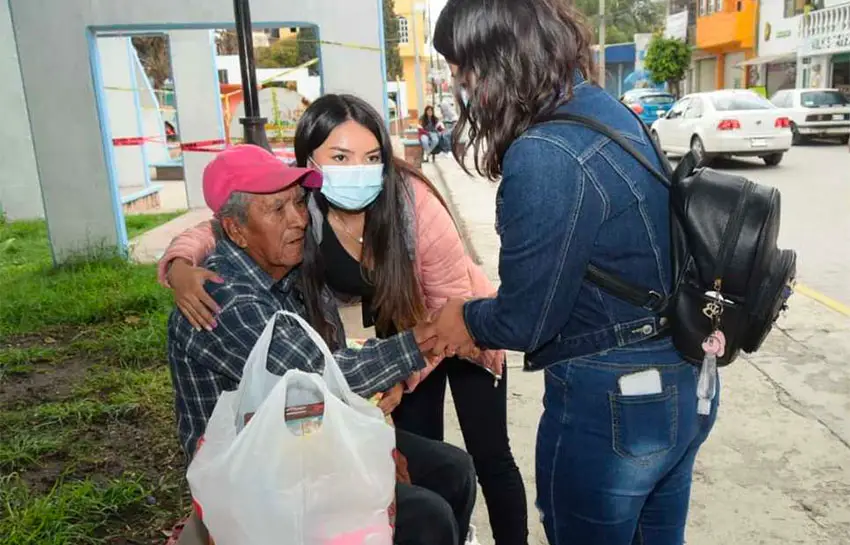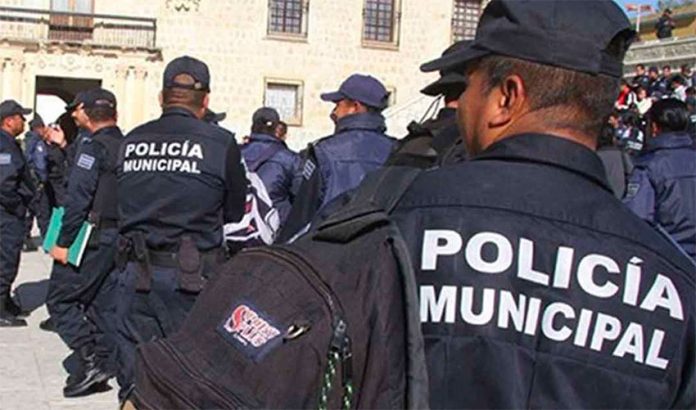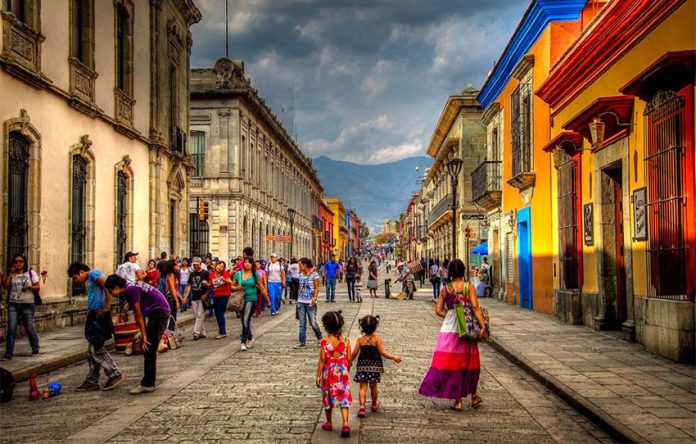Mexico’s coronavirus pandemic is out of control, says one former federal health minister, while another predicts that a new lockdown will be needed to halt the rapid growth in new cases.
President López Obrador claimed in late April that the pandemic had been controlled but that is still not the case more than two months later, according to Julio Frenk, health minister during the entirety of former president Vicente Fox’s six-year term between 2000 and 2006.
Frenk said in an interview that data shows that Mexico has not passed the first wave nor the worst of the pandemic more than four months after the coronavirus was first detected here.
In that context, the former minister advocated for the mandatory use of face masks and stressed that contact tracing and widespread testing are essential to controlling the spread of Covid-19.
The current president of the University of Miami also said that preparations need to begin for a widespread influenza vaccination campaign because outbreaks of that disease are likely to occur while the coronavirus is still spreading.
Frenk charged that the federal government is seeking to deflect blame for its management of the coronavirus crisis by criticizing past administrations for the poor state of the public health system.
“Looking for scapegoats is typical of populist regimes,” he said, adding that there has been a lack of leadership in responding to the pandemic.
Frenk said that he and others are not criticizing the government “for the sake of criticizing” but rather “because we’re worried like millions of Mexicans.”
“I’m sure that my colleagues would be willing to speak to [Deputy Health Minister Hugo] López-Gatell to improve the situation,” he added.
Another critic of the government’s management of the pandemic is Salomón Chertorivski, health minister in the final year of the 2006-12 administration led by former president Felipe Calderón.
Speaking at a conference, Chertorivski charged that the ineptitude with which the government has managed the health crisis will necessitate the implementation of a new national lockdown. He noted that case numbers are still rising quickly and that hundreds of people are losing their lives to Covid-19 every day.
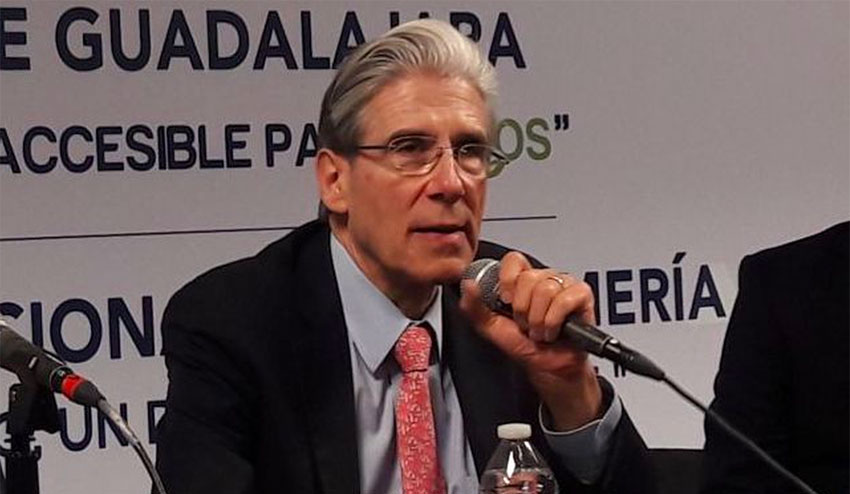
Chertorivski asserted that the first national (albeit voluntary) lockdown – known as La Jornada Nacional de Sana Distancia – was ended too soon as a result of President López Obrador’s impatience to resume his tours around the country.
The former health minister said that none of the internationally-established criteria for easing coronavirus restrictions was met before people began returning to their usual economic and everyday activities.
“There are three fundamental variables: reduction in the number of cases in the past 14 days, reduction in the number of deaths … and reduction in the number of people hospitalized. None of the three parameters was met,” Chertorivski said.
He claimed that the national social distancing initiative – in effect from March 23 to May 30 – didn’t succeed as a result of the government’s incoherent communication strategy and its failure to provide financial support to citizens that would have enabled them to stay at home.
The “stay-at-home” directive was a “profound failure,” Chertorivski said, because many people had no option but to continue working in order to put food on the table.
He urged authorities to do everything possible to stop the spread of the coronavirus virus before the onset of winter, echoing Frenk’s warning that it could coexist with the seasonal flu.
As Mexico’s coronavirus pandemic has continued to grow – new single-day records for case numbers were set on both Wednesday and Thursday – so has criticism of the government’s response to the crisis, and evidence that Covid-19 deaths are being significantly underreported.
The government, however, has staunchly defended its management of the situation, and López-Gatell, Mexico’s coronavirus point man, has repeatedly claimed that the social distancing measures put in place by the Health Ministry have resulted in a “flattening of the curve” in comparison with with what would have hypothetically occurred had mitigation measures not been implemented.
However, “a flattening of the curve” in comparison with what might have happened is not how the term is commonly used.
In recent days, officials have made a concerted effort at the nightly Health Ministry press briefings to present data and graphs that show Mexico’s management of the pandemic in a more favorable light, even as hard data shows that Mexico ranks eighth in the world for case numbers and fifth for Covid-19 deaths.
Since Sunday, data on case numbers and deaths have not even been presented at the nightly news conferences.
The government’s overarching narrative that the pandemic is not out of control and that coronavirus restrictions have been effective — even as the outbreak worsens and criticism mounts — led communications consultant Luis Antonio Espino to conclude that “two epidemics coexist in Mexico.”
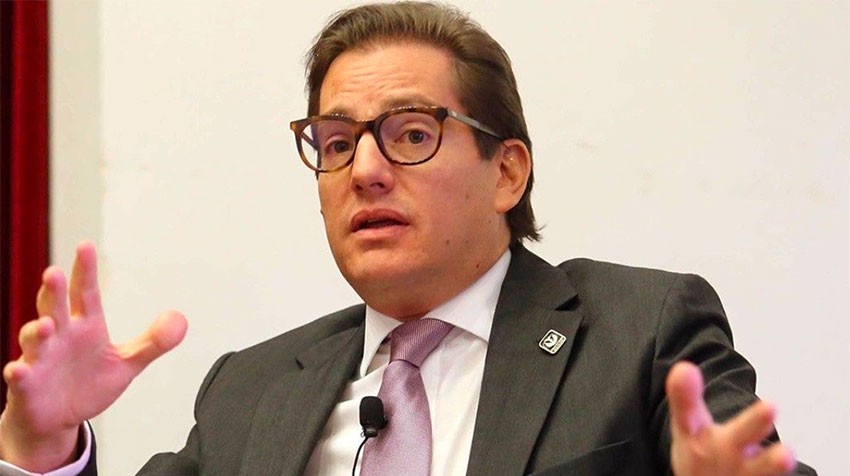
In an opinion piece published in The Washington Post, Espino writes that in one of the “two epidemics” – the one the government describes – Mexico has implemented an “impeccable strategy” in the fight against the virus.
From López Obrador and López-Gatell’s point of view, he writes, hospitals are not overwhelmed, the pandemic has been controlled and Mexico’s high fatality rate is the result of “Mexicans’ poor health conditions: obesity, diabetes, hypertension, all the product of neoliberalism.”
“The other epidemic,” Espino continues, is that reported by national and foreign media and by citizens on social media.
In “the other epidemic” – the real rather than imagined one – health workers have to protest in order to receive essential supplies and members of the scientific community propose the generalized use of face masks and advocate for increased testing and contact tracing, Espinoso writes.
“But nobody listens,” he claims.
The communications consultant charges that hospitals still have beds available because thousands of patients have died without having access to critical care or a ventilator and notes that infection rates among health workers in Mexico, and the country’s Covid-19 fatality rate, are among the highest in the world.
“The reopening of activities with the current levels of infections and deaths is considered much more risky than the authorities want to accept. In the other epidemic, the forecasts are bleak and Mexico is cause for international alarm,” Espinoso writes.
He accuses López Obrador and Lopez-Gatell of propagating “demagogic discourse” that divides the country in “two irreconcilable sides: ‘them’ — the economic, intellectual, media and scientific elite and the critics and opponents of the government, and ‘us’ — the benevolent people.”
Espinoso describes Lopez-Gatell, a Johns Hopkins University-trained epidemiologist, as a “propagandist” in a lab coat.
He asserts that “in the end, we will all pay” for the government’s management of the coronavirus pandemic and its biased, politicized presentation of the situation Mexico is facing.
“We don’t have a shared truth about the health crisis, there is no common understanding about what is happening and what we should do. … Keeping us … divided and distracted might be good for López Obrador’s political domination agenda but it’s very bad for us and our country.”
